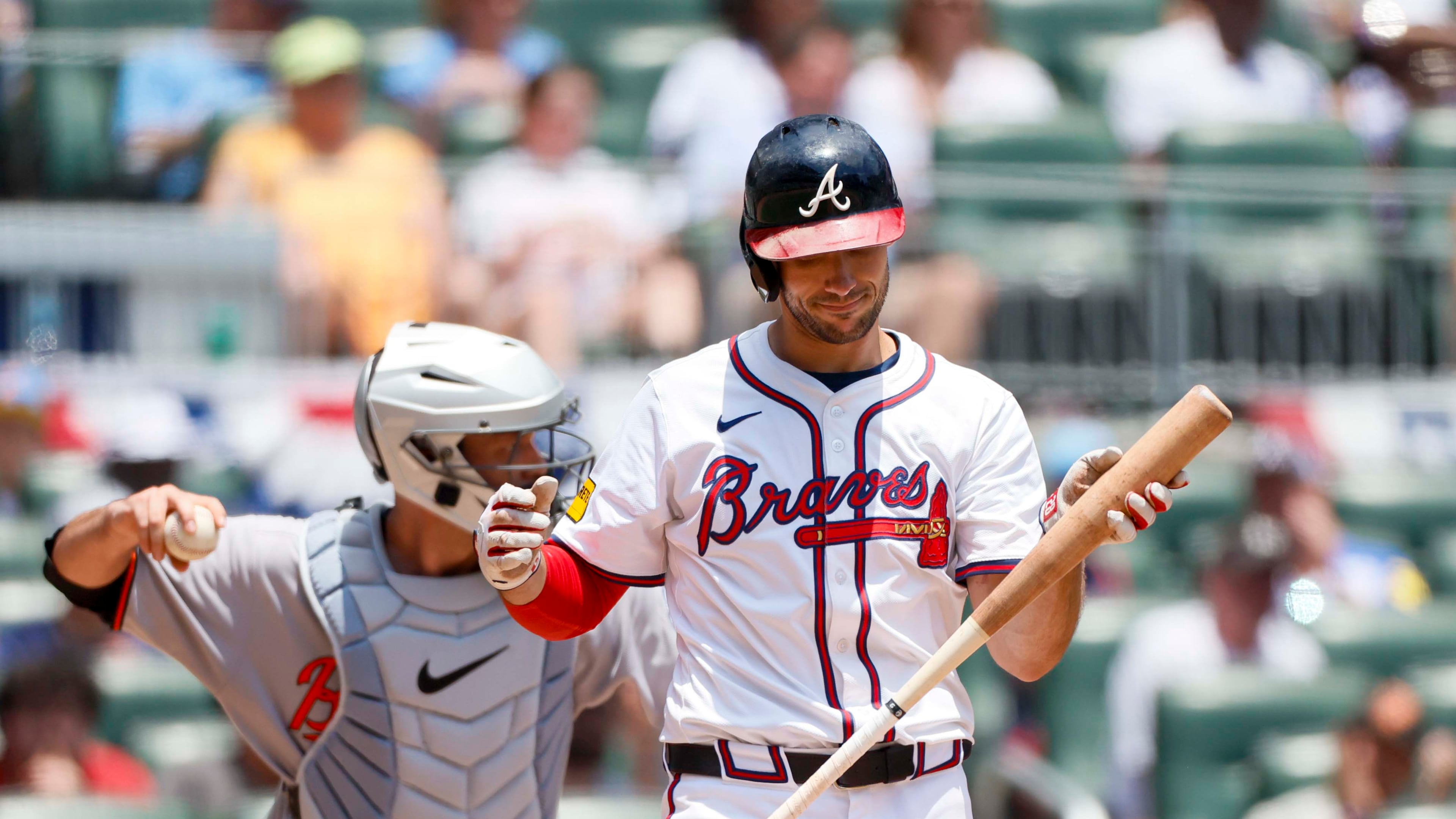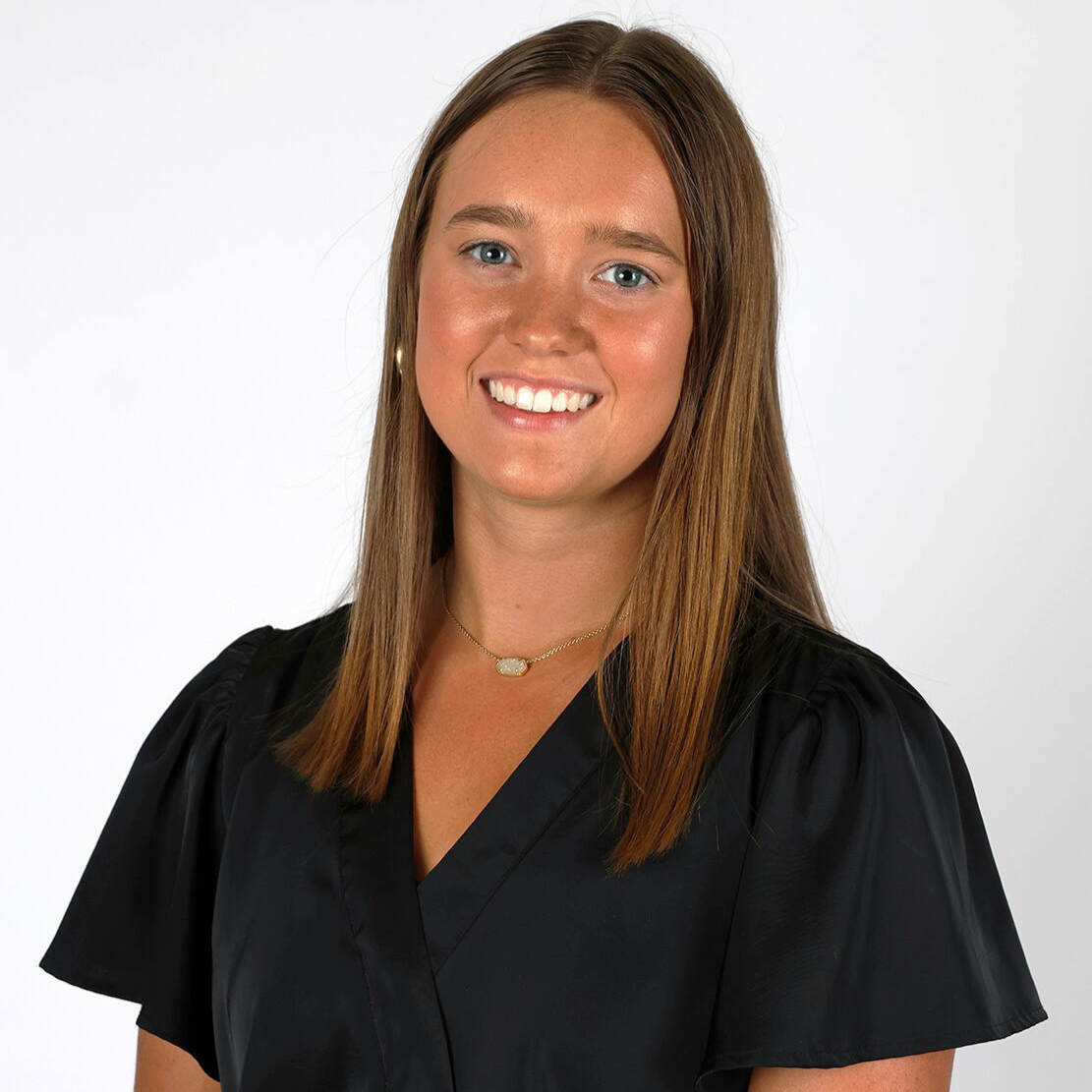Four takeaways from the Braves’ being swept by the Orioles

Many words come to mind when describing the Braves’ series against the Orioles from the club’s perspective.
“Dreadful” could describe accurately the team’s offensive performance, as it scored nine runs combined in the three games Friday through Saturday, with a total of 22 runners left on base. The team’s record dropped to 39-50 on the season with the three consecutive losses.
“Desperate” also could be used to illustrate the state of the Braves’ starting rotation, which is so depleted the club had to employ a bullpen game Saturday.
But to sum up the series that saw the Braves get outscored 14-9 on their home field, one should look no further than the words author Judith Viorst used to encapsulate 6-year-old Alexander’s series of misfortunes in one of her books:
It was a “Terrible, Horrible, No Good, Very Bad Day” (but in this case, multiple days) for the Braves.
“We’re struggling,” manager Brian Snitker said of the club, which has lost nine of its past 11 games. “It’s frustrating to me. It’s (frustrating) for the coaches, for the players — nobody likes where we’re at right now.”
Here are four takeaways from the series:
Murphy and Baldwin should start more consistently
It is no secret the Braves are struggling at the plate — scoring fewer than three runs in seven of their past 10 games — but catchers Sean Murphy and Drake Baldwin are swinging red-hot bats. The duo leads the National League backstops with 23 combined home runs and have gone deep in seven of the Braves’ past 15 matchups.
Their recent success arguably warrants a consistent spot in the starting lineup — the Braves need all the help they can get at the plate — but Snitker is hesitant to move away from Marcell Ozuna, who has started more than 95% of the Braves’ games at designated hitter this season.
But with Ozuna batting a mere .159 over the past month and still playing through a hip injury, the case to give Murphy and Baldwin consistent starts, something Snitker has done only three times this season, is a strong one.
“(Ozuna’s) been an elite player, elite hitter here for so long,” Snitker said of continuing to give him consistent starts. “You just hope, kind of like a few years ago when I kept playing him when he wasn’t doing great, and all of a sudden it hit, and then he became himself again. But it’s hard to put it on one guy. It’s not just one guy here right now. It’s a combination of an entire offense, so I don’t want to feel like I’m going to single anybody out.”
There is no clear fix to starting rotation issues
The Braves clearly lack starting pitching — surrendering 37 runs (22 by starting pitchers) in their past five games (an average of more than seven runs per game) not started by Spencer Strider, Grant Holmes or the now-injured Spencer Schwellenbach — but there is no clear fix to the club’s woes.
The obvious answer would have been to keep either Max Fried or Charlie Morton, whom the Braves saw upclose Friday, or acquiring a high-caliber starting pitcher in the offseason.
But not many foresaw the team losing three of its top five starters, with Schwellenbach, Chris Sale and AJ Smith-Shawver all suffering injuries, combined with the duo of Bryce Elder and Ian Anderson — who both fought for a starting role in spring training — continuing to struggle. (OK, maybe some foresaw that last part.)
Alas, that is where the Braves are at, leaving them with a rotation consisting of Strider, Holmes, Elder with a 6.94 ERA in his past seven starts, 20-year-old Didier Fuentes and whoever the club calls on to fill the fifth spot.
With no clear answers, Snitker employed a bullpen game Saturday that involved seven of his nine relievers. But the manager implied that continuing to lean heavily on the bullpen every fifth day is not sustainable for a club that possesses only two starters capable of consistently completing five innings.
“It depends on how we get there, quite honestly,” Snitker said on whether he envisions throwing another bullpen game when the fifth spot comes up again in the rotation. “Realistically, I taxed everybody pretty good today, I don’t see it happening. It could, but I don’t know that we can survive doing bullpen games.”
The Braves likely will call up a minor league pitcher to fill the role, but there is no clear-cut answer for who it will be. Anderson possesses major league experience but has a 6.10 ERA with more walks than strikeouts in 31 innings for Triple-A Gwinnett this season.
Former first-round pick Hurston Waldrep is doing slightly better, with a 5.25 ERA and 44 walks to 73 strikeouts in 73⅔ innings, but he posted a 16.71 ERA last season in his two big league starts.
The club could call up top prospect Cam Caminiti — although it risks shattering his confidence — directly from Single-A, All-Star Futures Game representative JR Ritchie from Double-A or even give a veteran such as Nathan Wiles, who leads Gwinnett with a 3.33 ERA, another opportunity. But none are an obvious answer.
There is no clear answer to fix offensive issues
Similar to the Braves’ starting-rotation challenges, there is no clear answer for awakening the club’s quiet bats.
The most baffling aspect of the team’s struggles — that include being shut out in 76 of its 89 innings dating to June 26 — is that the lineup mostly is the same as the Braves’ record-breaking one from 2023. The two major differences are Nick Allen replacing Orlando Arcia at shortstop and Jurickson Profar, arguably an upgrade, instead of Eddie Rosario in left field.
But most of the Braves’ 2023 stars are struggling. Former National League rookie of the year Michael Harris II is batting .160 over his past 30 games, with no walks since May 18 — over 153 plate appearances. Ozzie Albies also hit .198 in the month of June and hit only six home runs through 89 games this season.
Even All-Star Ronald Acuña Jr., who returned from injury on a hot streak, is batting .167 in his past seven games and .240 in his previous 15.
“They’re all capable of getting it going at any point in time and clicking,” Snitker said. “So that’s kind of how I look at it.”
Approaching ‘white flag’ territory
A white flag representing the act of surrender is not going to be flying in the Braves’ clubhouse, but the team is looking more like sellers than buyers at the impending trade deadline.
The club, which is aiming to extend a seven-year streak of making the postseason, is a season-worst 11 games under .500 and nine games back of the National League’s final wild-card spot with 73 games left to play.
To achieve the 88-win mark, which would match the Braves’ 2021 World Series team that made the postseason only because of the underperforming NL East — it would have taken more than 90 wins to earn a wild-card spot that season — the Braves would have to finish their season 49-24.
That is a winning percentage of over 67%, a clip that no MLB club has maintained this season. Only the Tigers (.626), Dodgers (.615), Astros (.611) and Cubs (.600) are above the 60% mark.
(In 2021, the Braves went 44-28 after the All-Star break for a winning percentage of 61%.)
The Braves have beaten the odds before — remember, they were given a 0.3% chance of winning the World Series on July 13, 2021 — but achieving their eighth consecutive postseason bid might take another miracle.



